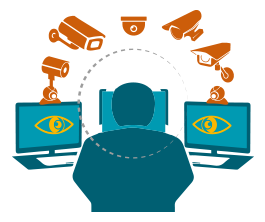- …
- Our work by topics
- Surveillance
Print
Surveillance

Technological progress in the last few decades have made monitoring, tracking and profiling techniques easier, cheaper and more accurate. As a result, surveillance has increased in both the public sector (for law enforcement purposes and public security for example) and in the private sector (for targeted advertising for example). These practices can profoundly affect how individuals think and act, as well as other personal rights (such as freedom of expression or association). Any form of surveillance is an intrusion on the fundamental rights to the protection of personal data and to the right to privacy. It must be provided for by law and be necessary and proportionate.
Filters
28
Feb
2007
14
Dec
2006
2
Nov
2006
London
Declaration adopted at the Conference of European Data Protection Authorities on high data protection standards in Third Pillar
Topics
26
Oct
2006
16
Jul
2006
Pagination
- First page
- Previous page
- …
- 9
- 10
- 11
- 12
- 13